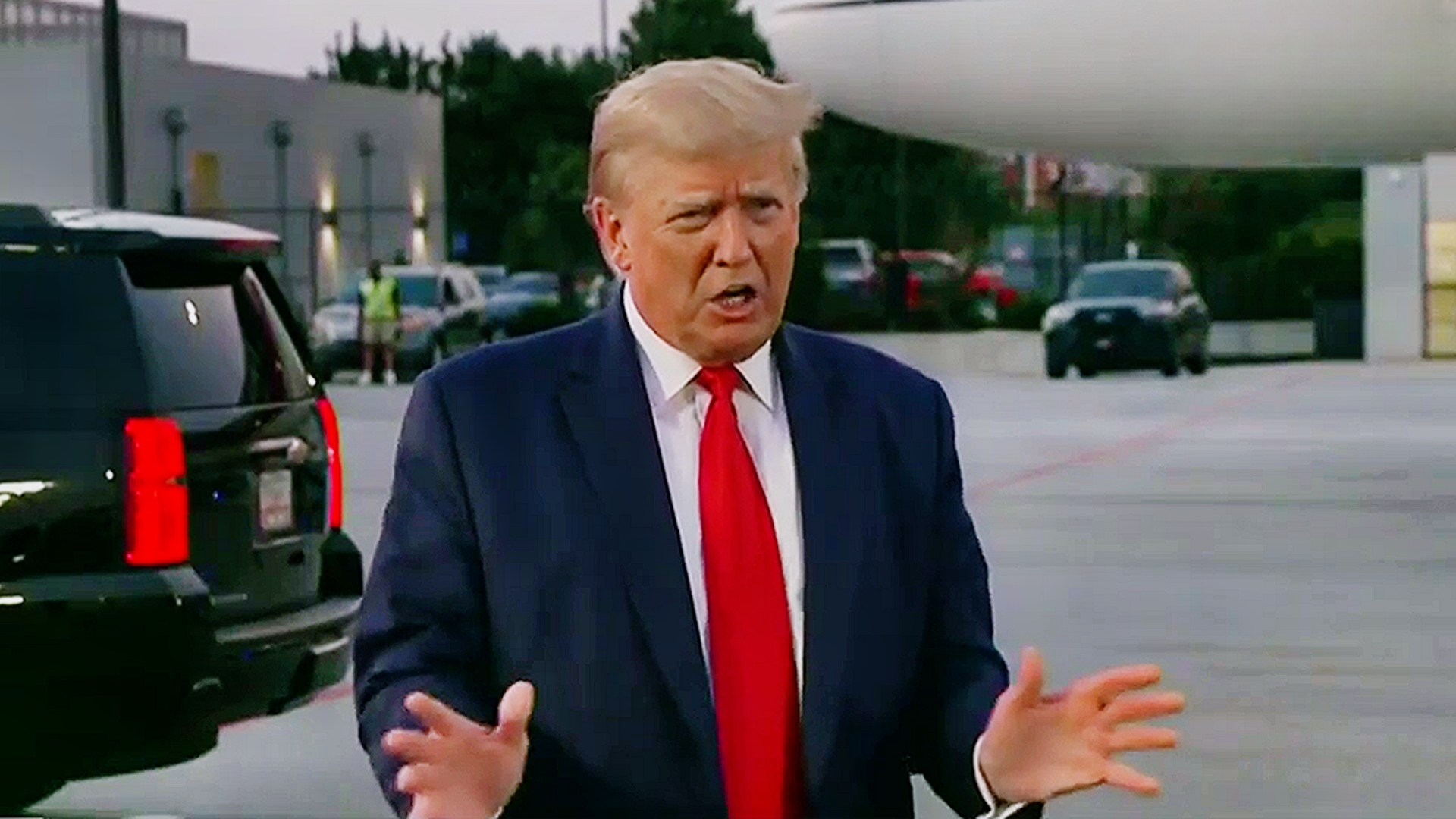Trump Demands Election Crimes Case Be Dropped In New Filing — Because Nobody Told Him Overturning Election Was Crime

Former President Donald Trump demanded the election crimes case against him be dismissed on the grounds that he didn’t have advance notice he would be committing a crime by trying to overturn the election.
Trump faces criminal trials in Washington DC, Georgia, New York, and Florida on a total of 91 felony counts — all of which are currently on the schedule prior to the general election.
In the Georgia election crimes case, Trump was indicted on 13 counts related to election crimes in a sweeping RICO case brought by Fulton County District Attorney Fani Willis against 19 co-defendants.
In a new filing to the Fulton County Superior Court to presiding Judge Scott McAfee, Trump’s attorney argued Trump “lacked fair notice” that his conduct could be considered criminal:
Our country has a longstanding tradition of forceful political advocacy regarding widespread allegations of fraud and irregularities in a long list of Presidential elections throughout our history, therefore, President Trump lacked fair notice that his advocacy in the instance of the 2020 Presidential Election could be criminalized. President Trump, like all citizens, is entitled to have fair warning as to where the line is drawn which separates permissible activity from that which is allegedly criminal. See United States v. Lanier, 520 U.S. 259, 265 (1997) (“‘No man shall be held criminally responsible for conduct which he could not reasonably understand to be proscribed.”).
“Due process bars courts from applying a novel construction of a criminal statute to conduct that neither the statute nor any prior judicial decision has fairly disclosed to be within its scope…” Id. at 266 (internal citations omitted).
“[A] statute or a rule may be held constitutionally invalid as applied when it operates to deprive an individual of a protected right although its general validity as a measure enacted in the legitimate exercise of state power is beyond question.” Boddie v. Connecticut, 401 U.S. 371, 379 (1971).
The filing goes on to offer refutations of each of the counts in the indictment.
The indictment enumerates the charges against Trump, which are listed below along with the maximum penalty for each:
- Count 1: Violation Of The Georgia Rico Act – 20 Years
- Count 5: Solicitation Of Violation Of Oath By Public Officer – 3 years
- Count 9: Conspiracy To Commit Impersonating A Public Officer – 2.5 years
- Count 11: Conspiracy To Commit Forgery In The First Degree – 7.5 years
- Count 13: Conspiracy To Commit False Statements And Writings – 2.5 years
- Count 15: Conspiracy To Commit Filing False Documents – 5 years
- Count 17: Conspiracy To Commit Forgery In The First Degree 2.5 years
- Count 19: Conspiracy To Commit False Statements And Writings 2.5 years
- Count 27: Filing False Documents – 10 years
- Count 28: Solicitation Of A Violation Of Oath By Public Officer – 3 years
- Count 29: False Statements And Writings – 5 years
- Count 38: Solicitation Of Violation Of Oath By Public Officer – 3 years
- Count 39: False Statements And Writings – 5 years
Ironically, the amendment Trump’s lawyers cite in this new filing — the 14th Amendment — is the same one being used to kick him off state ballots for engaging in insurrection.






